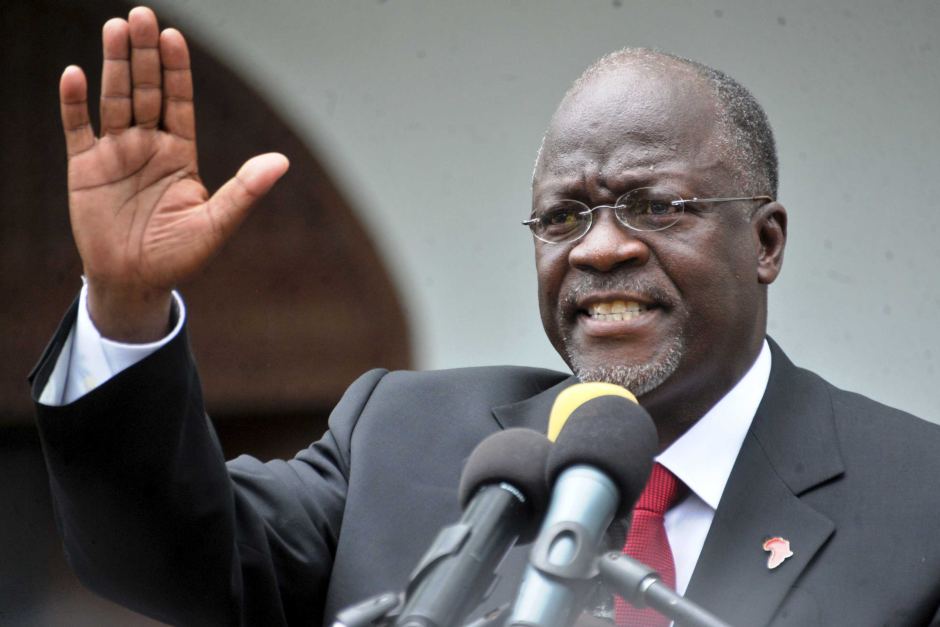
By Abdulrahman Aliagan, Abuja
Tanzania has been identified as one of the countries that have led his people out of extreme poverty and hunger in the world, particularly, in developing and sub-Saharan African countries. The World Bank Group has said.
It added further that, “Between 2000 and 2011, the extreme poverty rate fell by 36.9 percentage points in Tanzania, from 86.0% to 49.1%, for an annual average rate of reduction of 3.2 percentage points, which led to a reduction of 5.3 million in the number of Tanzanians living in extreme poverty.”
The Bank noted that there has been tremendous progress in the reduction of extreme poverty in the world. “We know that the world has seen tremendous progress in reducing extreme poverty since 1990. So, where in the world has poverty reduction been most successful?”
In a graphical analysis, 15 countries that experienced the largest annual average percentage point declines in extreme poverty rate between about 2000 and 2015, out of the 114 countries for which it can measure poverty in a comparable way over this period.
The release further stated that, “In each of these countries, an average of at least 1.6% of the population moved out of extreme poverty every year. This meant 802.1 million fewer people were living in extreme poverty in these 15 countries between 2000 and 2015.”
“For example, between 2000 and 2011, the extreme poverty rate fell by 36.9 percentage points in Tanzania, from 86.0% to 49.1%, for an annual average rate of reduction of 3.2 percentage points, which led to a reduction of 5.3 million in the number of Tanzanians living in extreme poverty. Tajikistan, Chad, and the Republic of Congo had average reductions in poverty of around 3 percentage points per year.
“While extreme poverty remains endemic in low-income and conflict-affected countries, many of which are in Sub-Saharan Africa, there is cause for optimism even in these countries. Seven of the top 15 countries are in Africa, and two are on the World Bank Group’s Harmonised List of Fragile Situations for FY19.
“Some of the 15 countries (China, Kyrgyz Republic, Moldova, Vietnam) effectively eliminated extreme poverty by 2015. In others (e.g. India), low rates of extreme poverty in 2015 still translated to millions of people living in deprivation. In some of the countries in Sub-Saharan Africa (e.g. Democratic Republic of Congo, Tanzania, Burkina Faso), extreme poverty rates, even after rapid reduction, remain above 40%.”
These 15 high performers make up a diverse group of countries—by geographic location, average income levels, poverty rates, and size of the population and the economy:
“Two of these countries were lower middle-income countries in 2000 and rose to upper middle-income status by 2015; eight were low-income countries in 2000 and rose to lower middle-income status by 2015; and five remained low-income countries over the entire period.
“The countries had vastly different poverty rates at the turn of the century—the extreme poverty rate ranged from 94.1% in DRC (2004) to 28.6% in Pakistan (2001).
“Their populations ranged from 2 million for Namibia (2003) to 1.3 billion for China (1999).
“ The size of their economy ranged from $861 million for Tajikistan to $1.2 trillion for China in 2000, in current U.S. dollars.

President Magufuli of Tanzania
It would be recalled that Magufuli has not brought continuity, but dramatic change in Tanzania, just few days after his inauguration. He made a snap unannounced visit to the Ministry of Finance on his first day as president to pulled funds intended for Independence Day celebrations and redirected them to anti-cholera operations. He began a shake-up of the Tanzania Port Authority, and extended it to the Tanzania Revenue Authority as he launched a tax collection drive. An audit of the public payroll led to a purge of “ghost workers”. Magufuli genuinely waging war on corruption in the Tanzanian.
There is a strategic thread that ties together Magufuli’s actions. Tanzania’s fifth Five Year Plan restores industrialization to the heart of government policy in a way unseen since the 1970s. Domestic processing and tax revenue is central to that plan. So is government discipline, thrift and tax collection. The closure of political space keeps CCM in power to implement it, and suffocates internal opposition to his reforms.
But the definitive feature of Magufuli’s first two years has been a talent for pursuing his program of reform while pursuing domestic popularity at the same time. His taste for the dramatic has caught public attention and his willingness to disturb the status quo has convinced many that his intentions are more sincere than those of his predecessors. Perhaps more than any other president since Tanzania’s founding father, Julius Nyerere, Magufuli is seen as a man of integrity.
While Magufuli has skillfully coupled popular politics with fundamental reform, he has also precipitated a series of unintended changes which may be slipping beyond his control.







